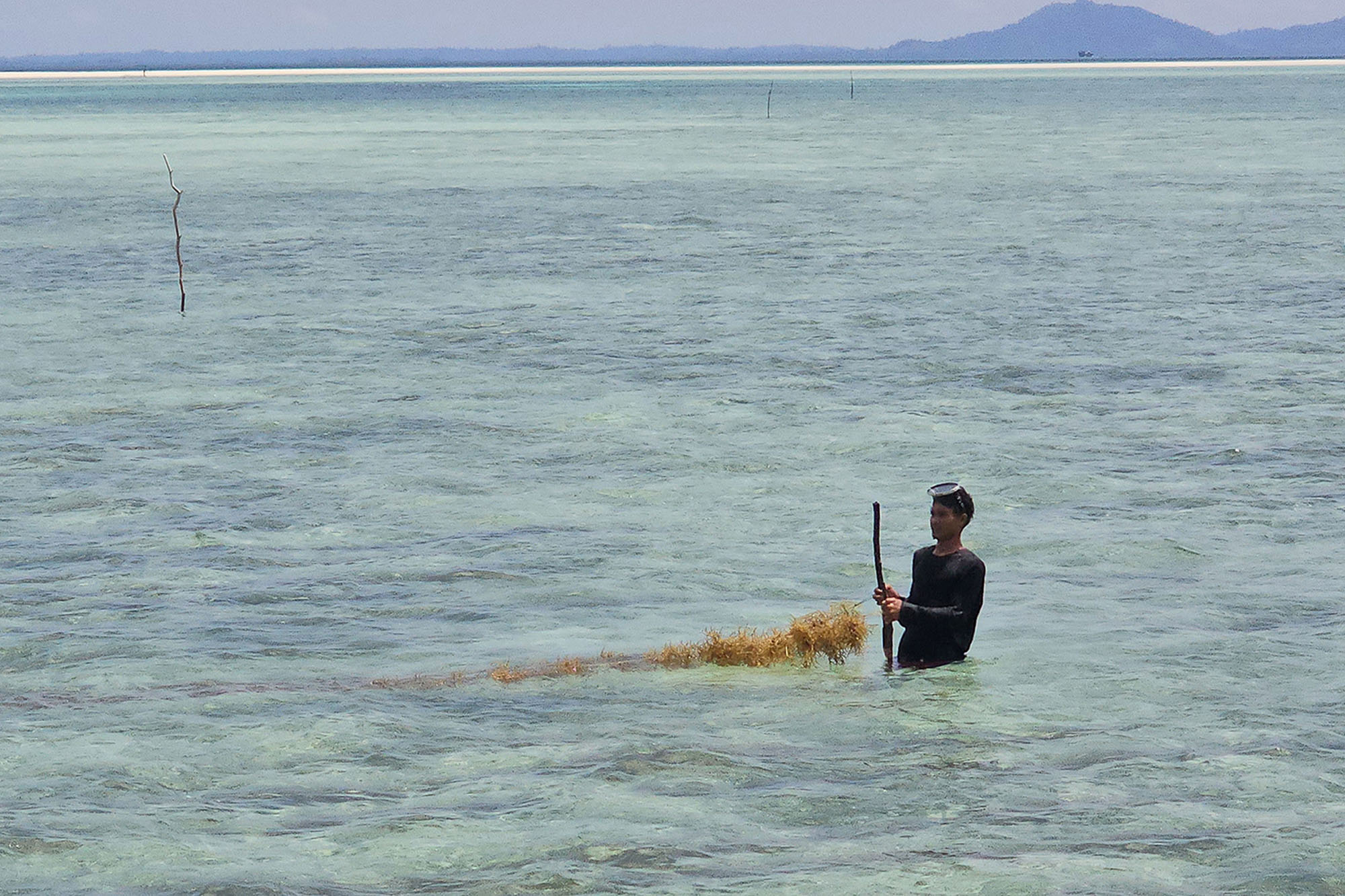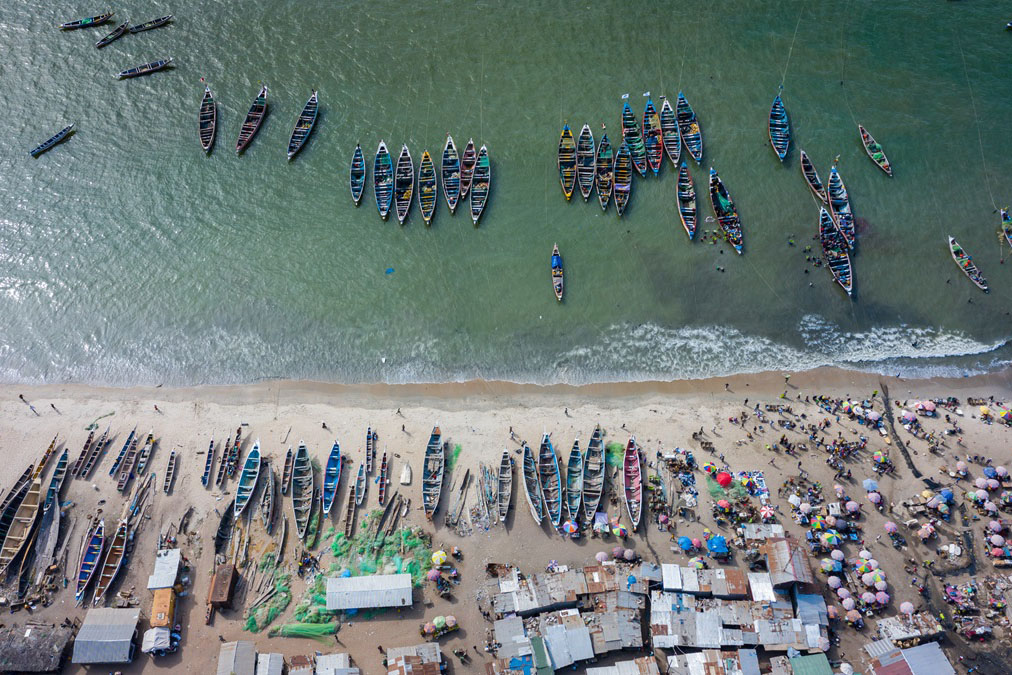Find out more in
Global ocean observations, coordinated by UNESCO’s GOOS and contributed to by over 80 countries, provide critical data to predict, manage, and adapt to changes in the marine environment and climate impacts.
The concept of Blue Voyage – or Mavi Yolculuk in Turkish – refers to a traditional sailing journey along Türkiye’s southwestern coast. In Türkiye’s Bodrum Peninsula, the “Blue Voyage” tradition faces threats from rapid tourism growth and coastal degradation. Once rich in marine life, Bodrum’s shores declined as seagrass meadows—vital carbon sinks and habitats—were removed. In 2023, marine biologist Mert Gökalp and the Underwater Research Society launched Project Posidonia with UNDP-GEF support, mapping 2,185 hectares of seagrass, identifying risks, and recommending marine protections. Beyond science, the project fostered community dialogue, waste and mooring reforms, and international collaboration.
The ocean, vital for food, clean air, and livelihoods, is increasingly threatened by climate change, pollution, and overfishing.
Fifty years after Jaws, UN Ocean Patron Lewis Pugh is swimming 96km around Martha’s Vineyard to shift perceptions and highlight the real threat sharks face, mass killing by humans, not the other way around.
Seafarers are the backbone of global trade, yet many face bullying, harassment, and discrimination. Studies show that over 50% of female seafarers, and significant number of male seafarers, have experienced harassment at sea that threatens their safety, mental wellbeing and career progression. On 25 June, the global maritime community comes together to celebrate the Day of the Seafarer. This year, the International Maritime Organization (IMO) launched the campaign 'My Harassment-Free Ship', a bold initiative to promote a culture of respect and zero tolerance for bullying and harassment at sea.
In Tawi-Tawi, Philippines, seaweed farming is a vital livelihood for many, but challenges threaten its future. Farmers like Imilita Mawaldani Hikanti have relied on cultivating agal-agal seaweeds for generations. The province, known as the “Seaweed Capital of the Philippines,” produces around 40% of of the country’s 600 000-tonne annual output of seaweed. However, volatile prices and competition have driven local prices down to PHP 25 per kilo (about USD 0.44), leading to losses for farmers. Additional issues like ice-ice disease caused by climate change exacerbate the situation. To address these challenges, FAO and local authorities have launched a project to enhance seaweed production and value chains.
The ocean plays a vital role in climate regulation, economy, and food security. This year’s Ocean Conference is a valuable opportunity to address threats like pollution and underfunding of marine conservation.
Christina Perrine is a woman whose early environmental awareness led her to take action locally. In 2023, she became a Plastics Ambassador for the Mauritius Plastic Challenge. Using her solar-powered bicycle, she visited rural villages to collect discarded plastic bottles and educate the community on recycling and reducing plastic use. The initiative, supported by Mission Verte and the GEF Small Grants Programme, trained six ambassadors, engaged over 4,000 citizens, and collected more than five tonnes of plastic waste. The project also organized clean-up campaigns, assisted small businesses in minimizing single-use plastics, and reached nearly 1,800 students with educational programs.
The 3rd UN Ocean Conference in Nice will unite global leaders to address urgent ocean challenges, drive sustainable use, and protect livelihoods dependent on marine ecosystems and trade.
The ocean is in crisis. Climate change, pollution, and biodiversity loss are threatening ecosystems, economies, and communities. Yet, the ocean is vital: it regulates our climate, provides us with oxygen, and absorbs carbon. Urgent action is needed to restore its health. From 9 to 13 June, global political leaders, civil society, private sector, youth and other partners are meeting in Nice, France, at the 2025 UN Ocean Conference to drive bold commitments for a sustainable ocean future. Follow all sessions on UN Web TV!
The ocean is our life source, producing over 50% of our oxygen, feeding billions, and regulating our climate. Yet, it's under threat from pollution, overfishing, and climate change. We are taking more from the ocean than can be replenished. This World Oceans Day (8 June), under the theme " Wonder: Sustaining what sustains us", we are invited to take action, protect the ocean, and be inspired by its beauty, mystery, and vital role on Earth. Let's restore balance together.
Fisheries are crucial for food, employment, and economic well-being globally. As populations and hunger rise, fish has become essential for food security. However, it is estimated that 1 in every 5 fish caught comes from illegal, unreported, and unregulated fishing, accounting for a loss of 11–26 million tonnes of fish annually. To help curb this trend, FAO promotes sustainable practices through its voluntary Code of Conduct and the binding Agreement on Port State Measures. On the International Day for the Fight against Illegal Fishing, let’s remember that we all play a part in this effort.
Every year, plastic kills over 100,000 marine mammals and a million seabirds, but the Ocean Decade is developing innovative, low-cost technologies to tackle plastic pollution at its source, aiming to prevent further environmental damage.
Research has found plastic waste makes up 80% of all marine pollution, and microplastics were found in every marine turtle, over half of all whales, and a third of seals.
Balancing ocean conservation with human activity starts by bringing together scientists, policymakers, and communities to sustainably share the sea.










